Memorial Record of 40 Years History of the AIDS Epidemic
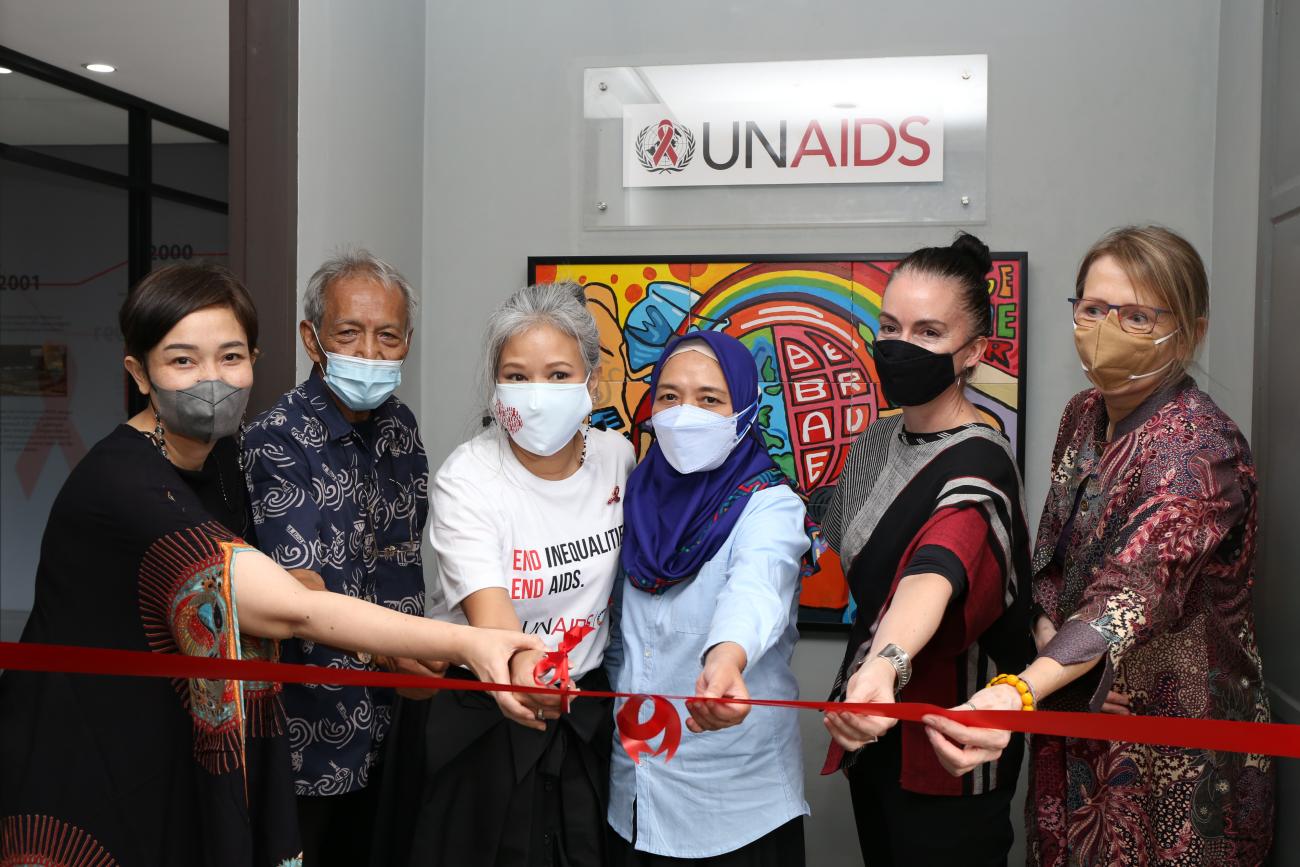
UNAIDS opened 40 Years of AIDS exhibition, capturing the history of AIDS globally and in Indonesia, and stories of the People Living with HIV community.
"If you love me, you have to show it, But I’m not forcing you, because tis your love. I can only accept and live in it happily. If you hate me, ask yourself. Are you bothered by my presence? From there we both learn, who are you, and who am I…"
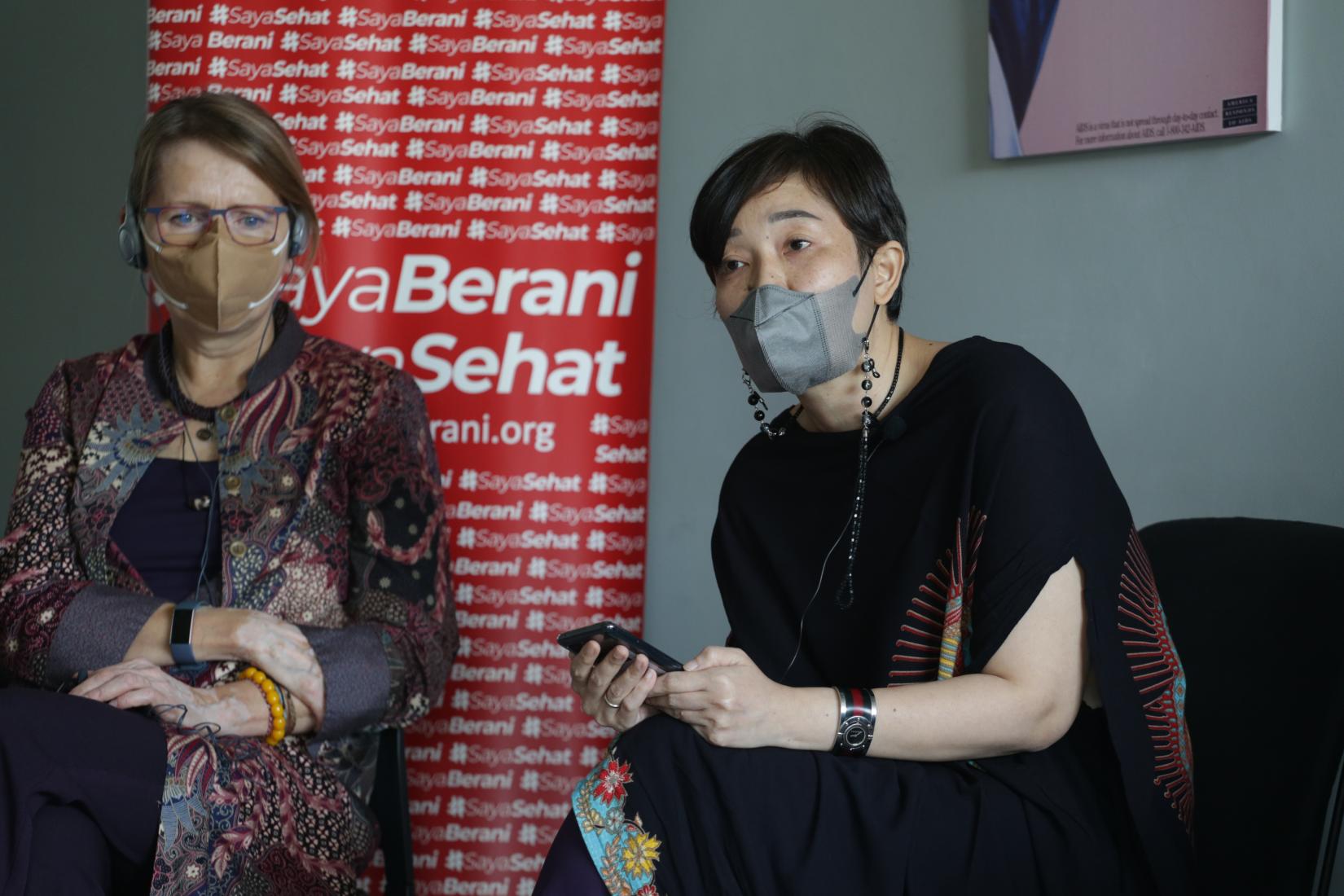
This simple poem by Suzana Murni was read by Meirinda Sebayang, Head of the Secretariat of the Indonesia Positive Network or Jaringan Indonesia Positif (JIP), in front of the audience attending the World AIDS Day 2021 commemoration. Suzana died in July 2002, right at the age of 30. In her short life, she lived as a person living with HIV (PLHIV). Throughout her life, Suzana has been persistent in fighting for equality for people living with HIV and against other forms of discrimination.
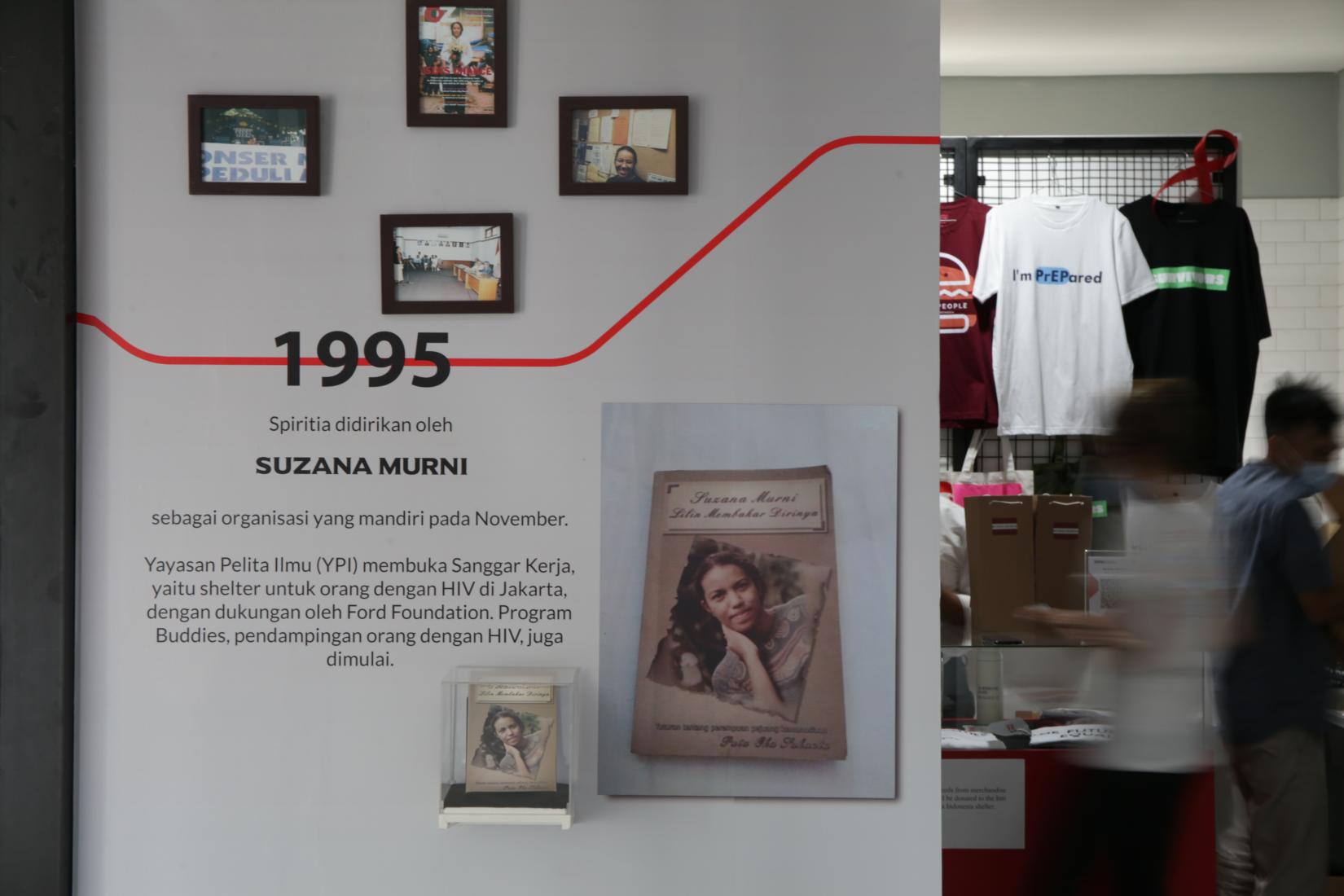
This activist figure who was born on March 23, 1972 was originally known as a fashion designer before she was tested positive for HIV. However, she bravely spoke out in international forums representing the PLHIV community. The poem, which was echoed by Meirinda earlier, made the audience silent when the lyrics were read. Suzana once again shared her passion and hope to the community at the 40th anniversary of the AIDS epidemic.
A number of invited guests sat on a circular bench on the second floor of the UNAIDS Indonesia office in South Jakarta, Wednesday, December 1, 2021. This poetry reading event also opened an exhibition of the 40-year history of AIDS and a photo exhibition which was also attended by Valerie Julliand, Resident UN Coordinator in Indonesia, and representatives of the Indonesian Ministry of Health, Australian Embassy, USAID, Dutch Embassy, and representatives from PLHIV community and key populations in Indonesia.
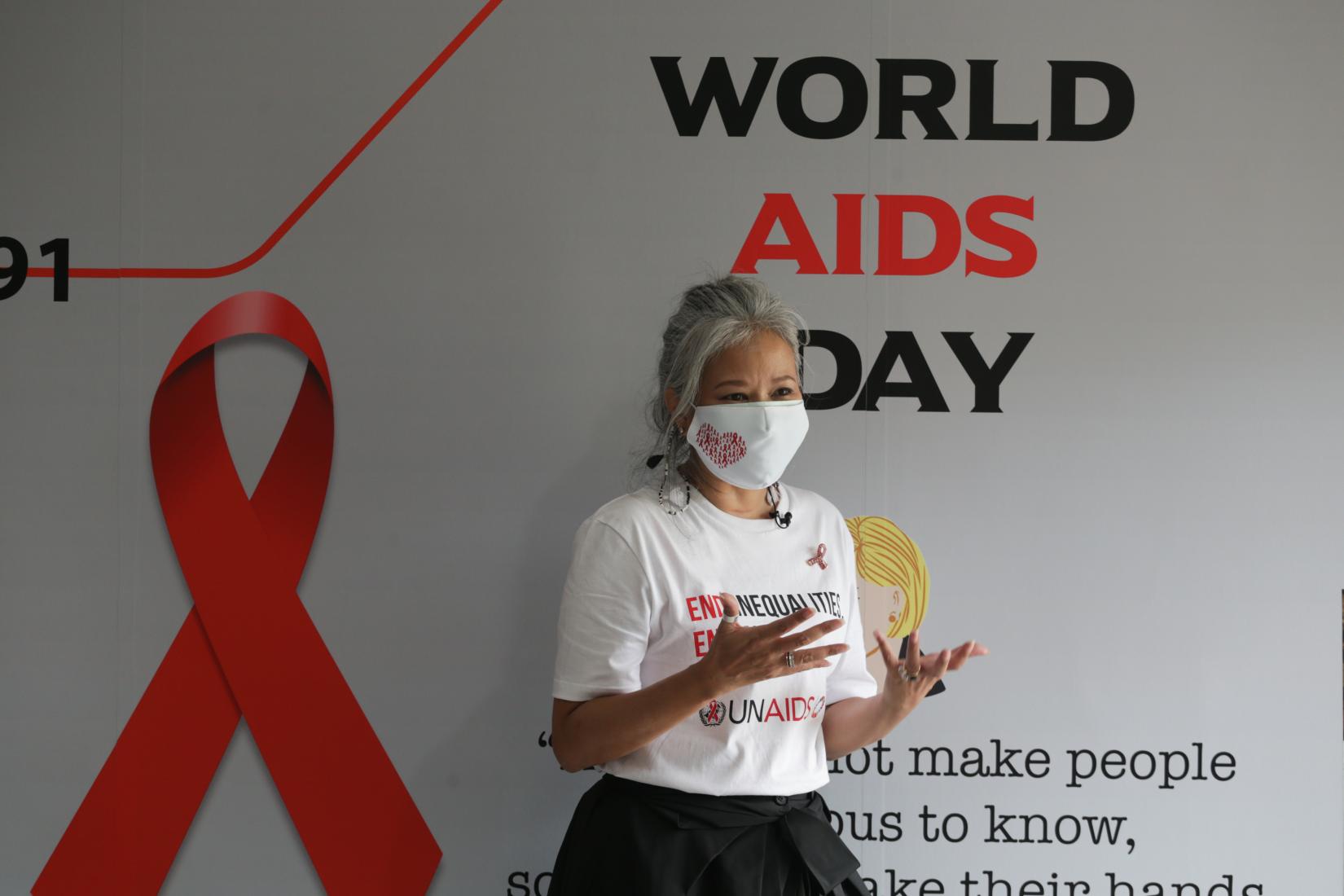
UNAIDS Indonesia Country Director, Krittayawan Boonto, said that every year UNAIDS holds World AIDS Day commemoration events. "This year we are again making reflections as well as recording historical memories about AIDS. Starting from the first time HIV was known in the world to current events and experiences. Both good and bad moments over time,” she said.
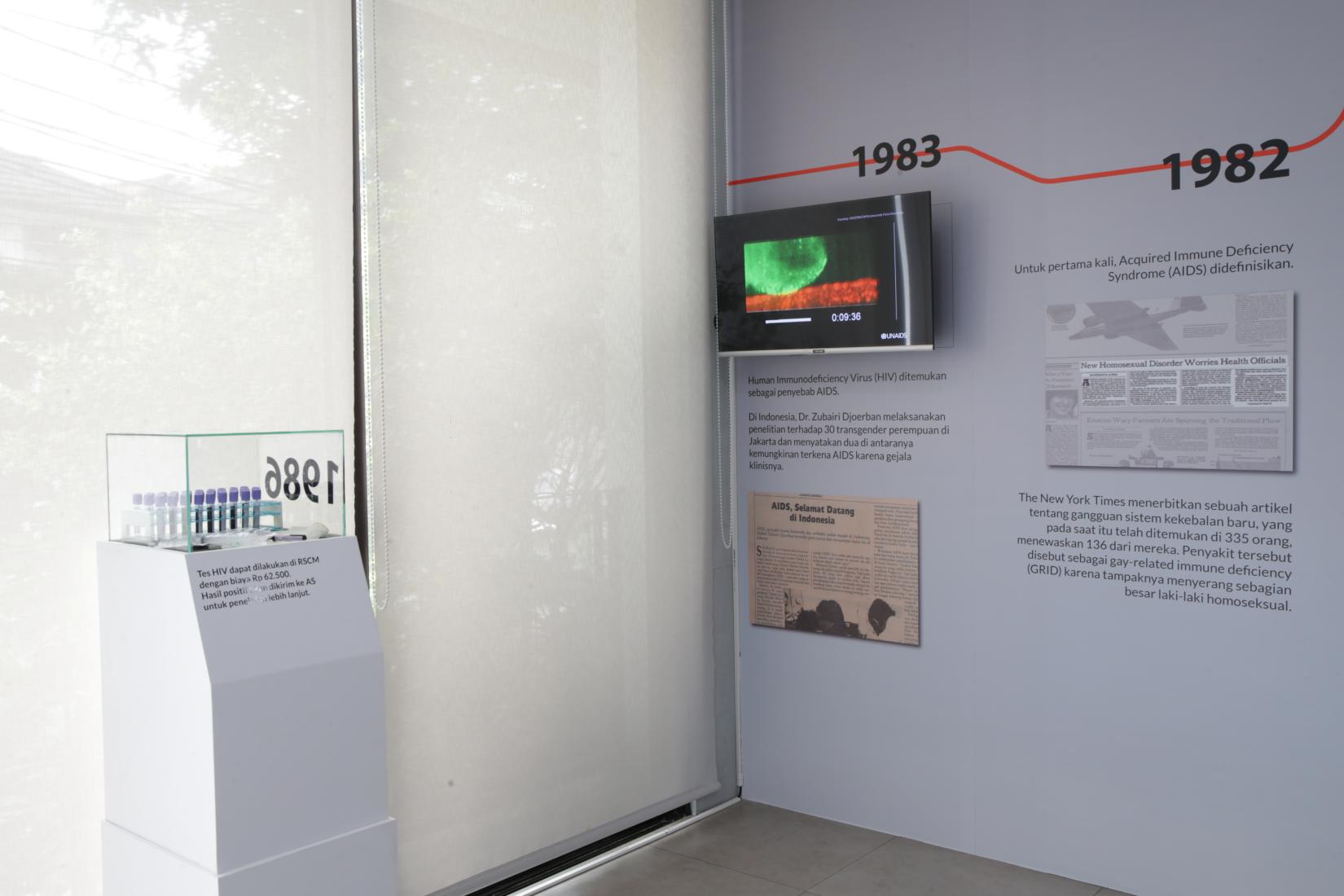
In the exhibition room, the exhibition begins with a timeline in 1981, which tells about the first reported case of Acquired Immune Deficiency Syndrome (AIDS). Moving forward to the year 1983, dr Zubairi Djoerban in Indonesia conducted research on 30 transgender women, and found that two of them contracted AIDS because they had clinical symptoms. Each year, until 2021, tells about critical progresses, issues, and phenomena that occur both in Indonesia and the world.
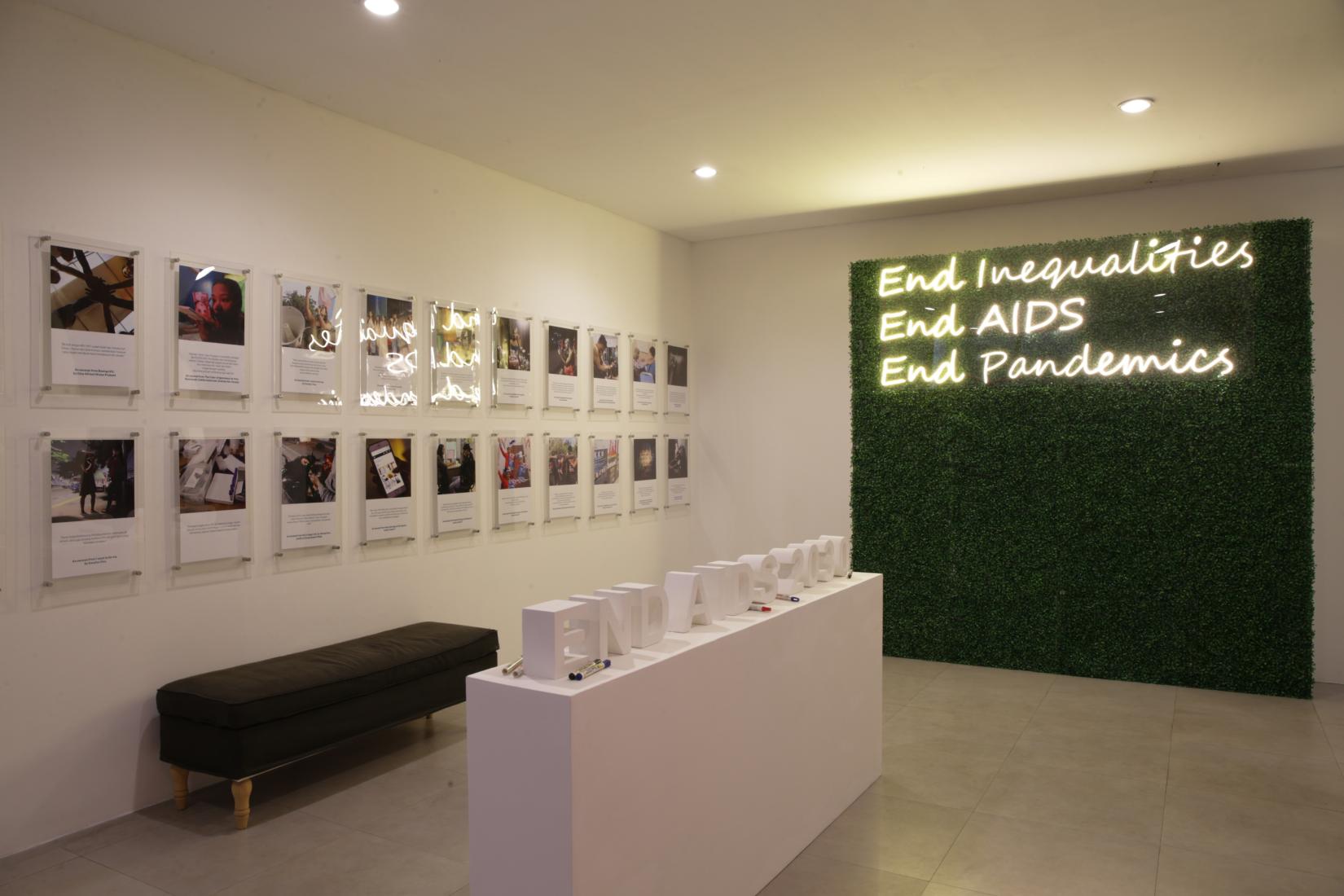
In addition to historical stories, the 40 Years of AIDS event also showcased photo works in the back of the exhibition room. The work of each of these photographers represents their communities, which tells the stories of various events experienced and felt by people living with HIV to gain equality and fight discrimination.
According to Ms Boonto, visitors can respond to the story of this community by seeing these visuals. "Since the beginning of the AIDS epidemic, communities have been at the forefront of the HIV response. We created this exhibition as a form of appreciation and respect for the community as well as a celebration of their life and resilience," she added.
In the photo exhibition room, there is totem with the slogan End AIDS 2030. Each visitor can write a signature and message of encouragement. In front of it is the photo wall with the words End Inequalities, End AIDS, and End Pandemics.
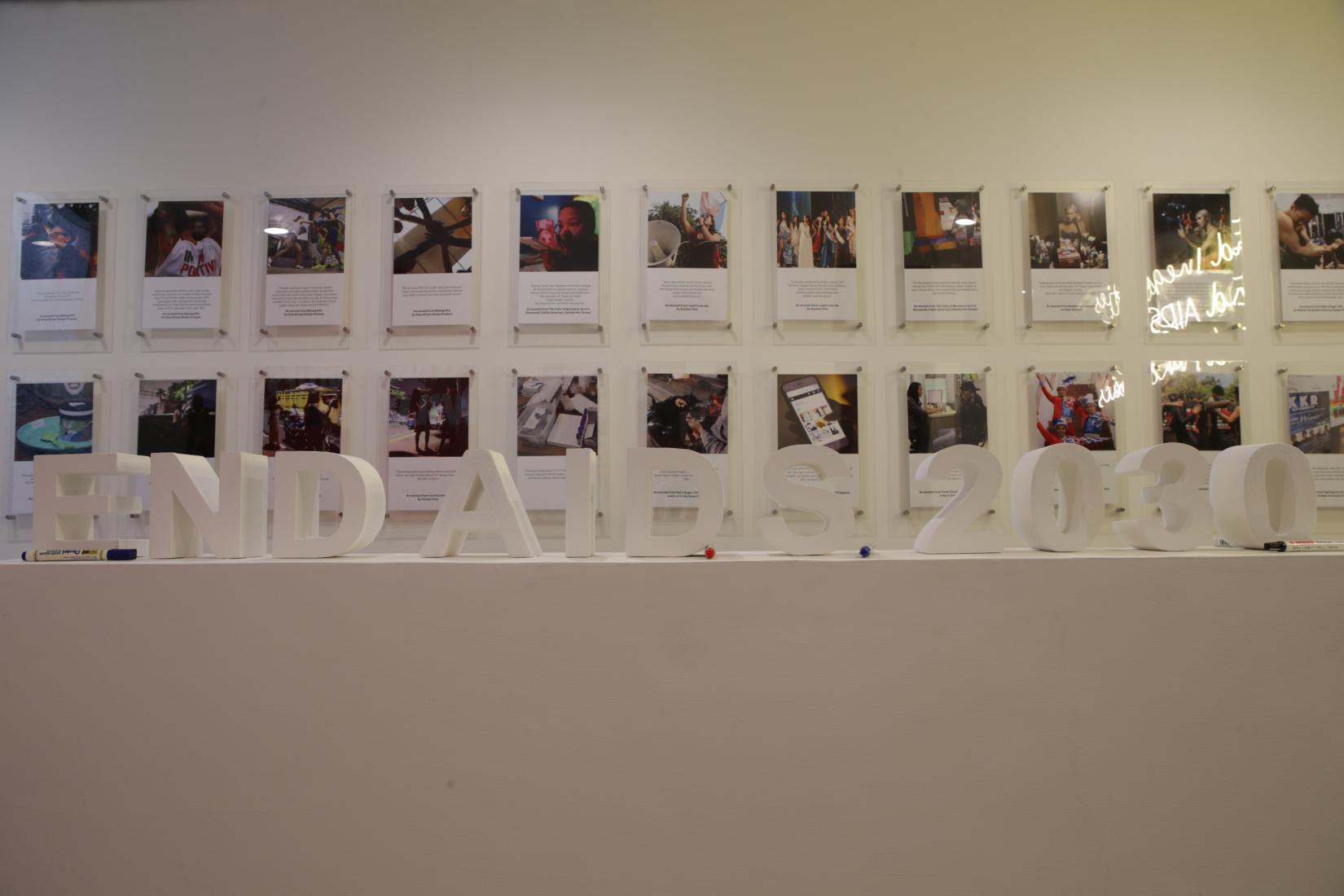
Total of 30 works by photographers from the HIV-positive community and key vulnerable HIV populations displayed in two rows in a row. These works look attractive and stunning. Gina Afriani Wulan Pratiwi, for example, depicts the symbol of people holding hands with an excerpt of her work entitled "Boxing HIV".
The work of photographers Andri F and Edi Saputra Lubis visualizes mugs, spoons, and plates, accompanied by the caption, "My family doesn't allow me to share plates, spoons and forks with them anymore. I have to use my own cutlery. I feel very isolated. ..."
Another photo shows some medical equipments that we often see in hospitals. The photo is accompanied by a written statement, "Even though the number of HIV cases in Indonesia is high, many people are still reluctant to take an HIV test because of the negative stigma in society".
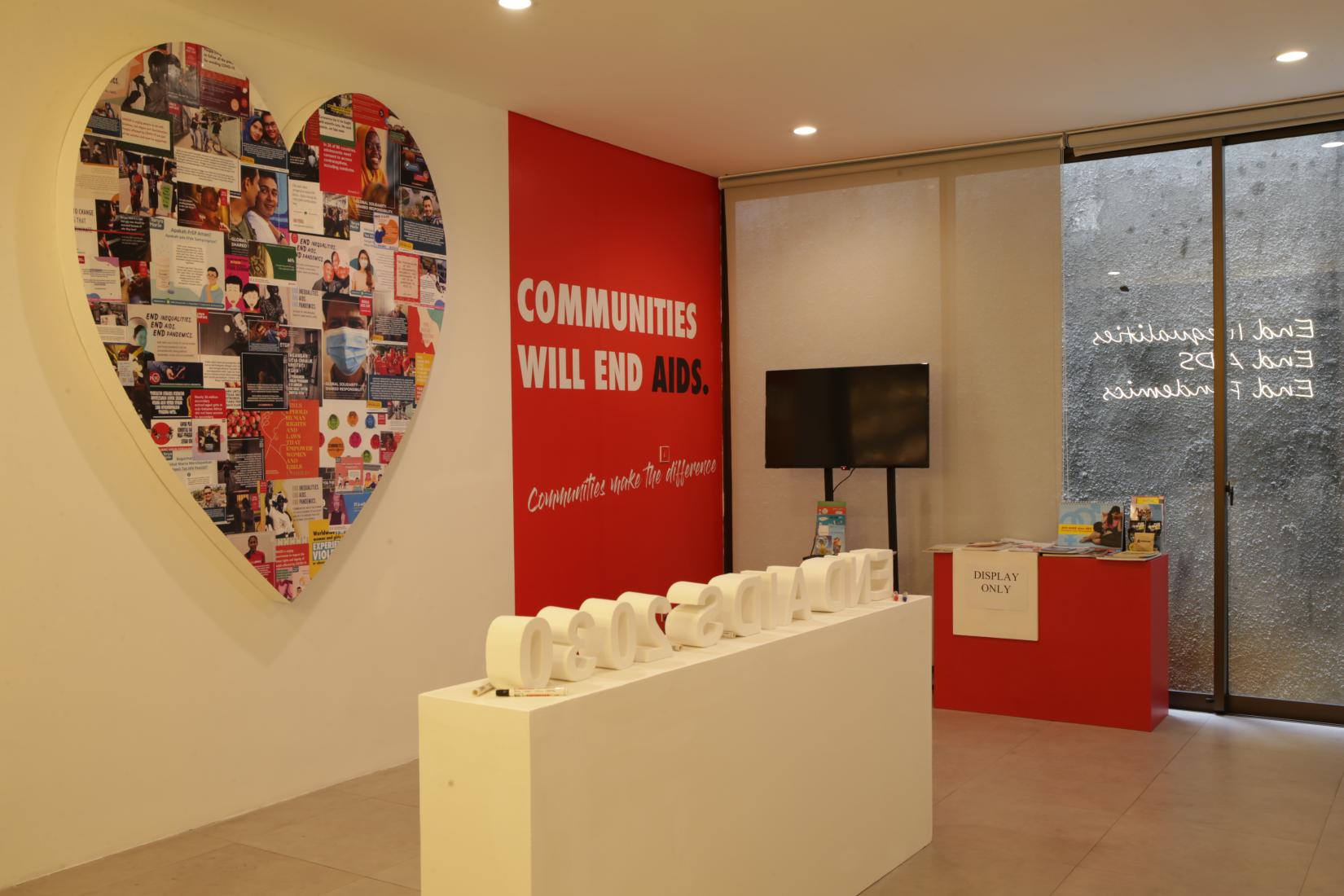
In front of the photo exhibition is another wall dedicated to the community of People Living with HIV and Key Populations whose contributions to the HIV response has been instrumental. A collage in the shape of a heart showcases posters and campaigns throughout the years, while also providing visitors with a lively photo backdrop.
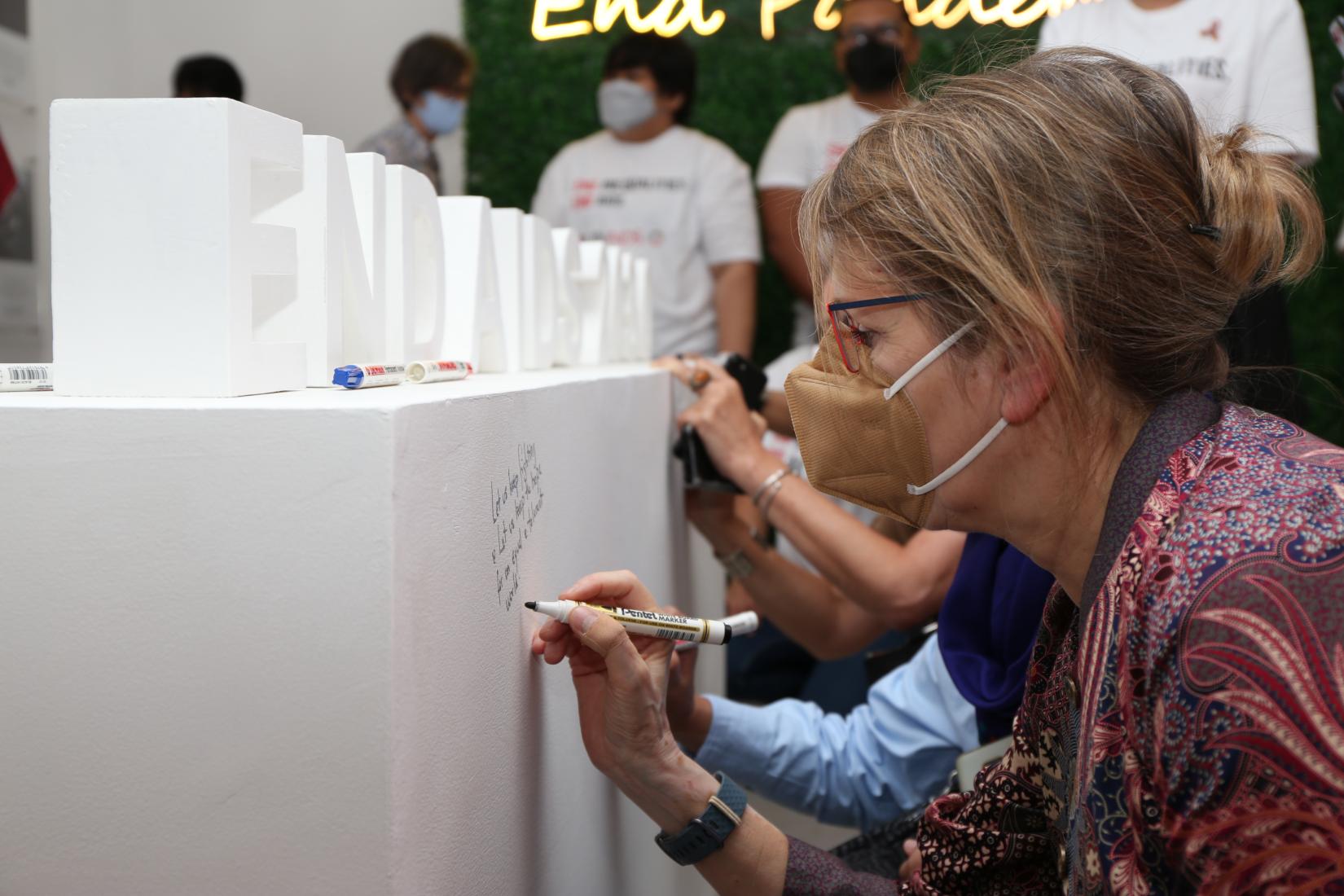
In her opening remarks, Valerie Julliand, UN Resident Coordinator said, “Our work, our task together, is to confront the inequalities and stigmatization that allow the AIDS epidemic to persist. Because when we say nobody, today, should be dying of AIDS-related illnesses, we must in turn acknowledge that we bear collective responsibility for those who do.”
The public can visit to see this exhibition which will be permanently displayed at the UNAIDS Indonesia Office in South Jakarta on weekdays with prior reservation. The UNAIDS team will facilitate community visits as well as provide comprehensive education about the history of HIV and AIDS, globally and nationally. An exhibition Virtual Tour is also accessible for the public outside of Jakarta in UNAIDS Indonesia’s YouTube channel:
For further information, please visit social media Instagram @unaids.id and Twitter @unaids_id.


